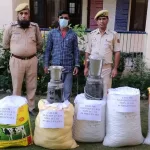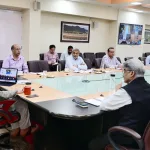Postpartum depression (PPD) is a complex mix of physical, emotional, and behavioral changes that happen in some women after giving birth.
Postpartum depression occurs after giving birth, and it involves a persistent low mood. It is different from the “baby blues” that many new parents experience.It’s strong feelings of sadness, anxiety (worry) and tiredness that last for a long time after giving birth. These feelings can make it hard for you to take care of yourself and your baby.
PPD can happen any time after childbirth. It often starts within 1 to 3 weeks of having a baby. It needs treatment to get better. It’s common for women to experience the “baby blues”—feeling stressed, sad, anxious, lonely, tired or weepy—following their baby’s birth. But some women, up to 1 in 7, experience a much more serious mood disorder—postpartum depression (PPD).
Postpartum psychosis, a condition that may involve psychotic symptoms like delusions or hallucinations, is a different disorder and is very rare.
After having a baby, many women have mood swings. One minute they feel happy, and the next minute, they start to cry. They may feel a little depressed, have a hard time concentrating, lose their appetite, or find that they can’t sleep well, even when the baby is asleep. These symptoms usually start about 3 to 4 days after delivery and may last several days.
Women who experience the baby blues are at an increased risk of developing postpartum depression. The condition is characterized by more intense feelings of sadness, despair, anxiety and irritability. The symptoms are longer lasting and may occur anytime within the first year. It often affects a woman’s ability to function, and without medical attention, the symptoms may worsen.
Postpartum psychosis is a rare, serious mental illness that affects one in 500 to 1,000 new mothers. The onset is usually within the first six weeks after delivery and may cause the mother to completely lose touch with reality. She may have thoughts of harming herself or her child.
Women who have bipolar disorder or another psychiatric problem called schizoaffective disorder have a higher risk of developing postpartum psychosis. Counseling, combined with medication and education in stress reduction, generally leads to recovery. An estimated one in seven women experiences postpartum depression.
Pregnancy and the period after delivery can be a particularly vulnerable time for women. Mothers often experience immense biological, emotional, financial, and social changes during this time. Some women can be at an increased risk for developing mental health problems, particularly depression and anxiety.
Symptoms of Postpartum Depression
•Depressed mood or severe mood swings.
•Difficulty bonding with your baby.
•Withdrawing from family and friends.
•Loss of appetite or eating much more than usual.
•Inability to sleep (insomnia) or sleeping too much.
•Overwhelming fatigue or loss of energy.
•Intense irritability and anger.
•Fear that you’re not a good mother.
•Hopelessness.
•Feelings of worthlessness, shame, guilt or inadequacy.
•Diminished ability to think clearly, concentrate or make decisions.
•Restlessness.
•Severe anxiety and panic attacks.
•Thoughts of harming yourself or your baby.
•Recurrent thoughts of death or suicide.
•Worrying excessively or feeling on edge.
•Loss of interest in hobbies or things you once enjoyed.
•Changes in appetite or not eating.
•Loss of energy and motivation.
•Trouble sleeping or wanting to sleep all the time.
•Crying for no reason or excessively.
•Difficulty thinking or focusing.
•wishing you were dead.
•Lack of interest in your baby or feeling anxious around your baby.
•Thoughts of hurting your baby or feeling like you don’t want your baby.
Physical effect of stress and anxiety
Stress is a normal physical and emotional response to life events. Everyone experiences stress at some point in their lives. Work and family commitments, as well as major life events such as a new diagnosis, war, or the death of a loved one, can all cause stress. Stress can be beneficial to your health in short-term situations. It can assist you in dealing with potentially serious situations. Stress causes your body to release hormones that increase your heart rate and breathing rate while also preparing your muscles to respond.
However, if your stress response does not cease firing and your stress levels remain elevated for much longer than is essential for survival, it can have a negative impact on your health. Chronic stress can cause a variety of symptoms and affect your overall well-being.
Symptoms of chronic stress include:
• irritability
• anxiety
• depression
• headaches
• insomnia
Anxiety is a natural part of life. For example, you may have felt anxiety before addressing a group or in a job interview.You may feel physical symptoms of anxiety, including Trusted Source:
• rapid breathing or heart rate
• lightheadedness or dizziness
• abdominal pain
• indigestion
• chest pain
• fatigue
• insomnia
• headache
Anxiety increases your breathing and heart rate in the short term, concentrating blood flow to your brain, where it is needed. This very bodily reaction is preparing you to deal with a stressful scenario.
If it becomes too powerful, you may become lightheaded and queasy. Anxiety, whether extreme or persistent, can be detrimental to your physical and emotional health.
Anxiety disorders can occur at any age, but they are most common during early adolescence and early adulthood. According to the Anxiety and Depression Association of America (ADAA), women are more likely than men to suffer an anxiety disorder.
Stressful life events may also increase your risk of developing an anxiety condition. Symptoms can appear right away or years later. Anxiety disorders can develop as a result of a major medical condition or a substance use issue.
There are several types of stress and anxiety disorders. They include the following:
Generalized anxiety disorder (GAD)
GAD is characterised by excessive worry for no apparent reason. According to the ADAA, GAD affects approximately 6.8 million adults in the United States each year.
When severe worry over a variety of items lasts 6 months or more, GAD is diagnosed Trusted Source. If you have a minor case, you should be able to go about your normal daily activities. More serious cases may have a significant influence on your life.
Social anxiety disorder
A paralysing fear of social situations and being criticised or humiliated by others characterises social anxiety disorder. This severe social phobia might make you feel humiliated and isolated.
Social anxiety disorder affects around 12.1% of adults in the United States at some point in their lives. More than one-third of patients with social anxiety disorder put off seeking help for a decade or more.
Post-traumatic stress disorder (PTSD)
PTSD arises as a result of witnessing or experiencing a stressful event. Symptoms might appear suddenly or gradually over time.War, natural calamities, or a physical attack are all common causes. PTSD episodes can occur without warning.
Obsessive-compulsive disorder (OCD)
People with OCD may feel overwhelmed by the impulse to repeat specific rituals (compulsions), or they may suffer intrusive and upsetting thoughts (obsessions).
Compulsions that are common include habitual handwashing, counting, or checking something. Concerns about cleanliness, aggressive tendencies, and the need for symmetry are all common obsessions.
Phobias
Phobias include fear of tight spaces (claustrophobia), fear of heights (acrophobia), and many others. You may have a powerful urge to avoid the feared object or situation.
Panic disorder
This results in panic episodes, as well as sensations of dread, horror, or impending doom. Heart palpitations, chest pain, and shortness of breath are all physical symptoms.
These attacks can happen at any time. Along with panic disorder, you may have another sort of anxiety illness.





